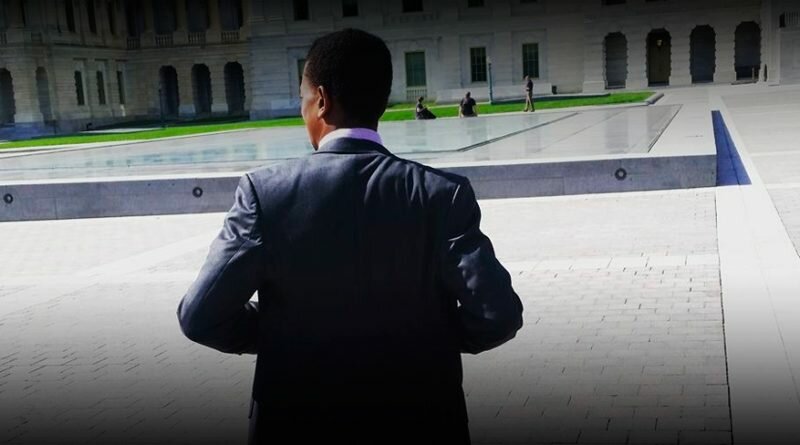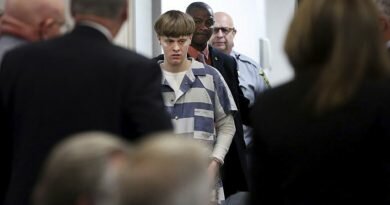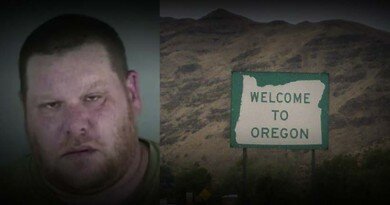Kenneth Shelton: We Need to Fight From Different Angles
Interview with Kenneth Shelton, Black rights activist and public speaker.
In August this year, we organized a vigil in New York City in memory of Mike Brown, who was fatally shot by a cop on August 9, 2014. Mike Brown was just 18 when he was murdered by Darren Wilson, a white police officer. As a community, our mission is to highlight these acts of injustice that are constantly perpetrated against Black people. In this regard, the vigil for Mike Brown was an event where we highlighted the need for change in the law enforcement system in the country. Kenneth Shelton, a Black rights activist and member of Black Lives Matter Greater New York, was a speaker at this vigil. He talks to us today about what led him into activism and what he thinks can be done about the menace of police brutality faced by Blacks here in America.

Please tell our readers about you and what you do.
Basically, what I’ve been doing since I’ve gotten up here to New York and even back home is advocating for change in the best way possible. At home, at school or at any place I’ve been, I’ve always been trying to make a difference, whether it’s just speaking to people or working with people in any way, shape, form or fashion.


You’re an advocate at Organizing For Action. Can you tell me about the organization and what you do?
Organizing For Action, basically, is a plan under President Obama, to advocate for progressive change; things like climate change, healthcare reforms – so obviously the Affordable Care Act – women empowerment, things of that nature. It’s a national platform and a statewide platform. I’m doing work with the statewide platform, in terms of county involvement and also the different platforms that they have. And right now, I’m training in one of them – in their selective student organizing team – so that I can become a better organizer in the future and gear up for the things that I want to do.


And how long have you been active in the Black Lives Matter movement?
This will probably be the second year, I guess, as far as the first year that I’ve really been active instead of just an affiliate. I’ve been part of leadership decisions, engagements, things of that nature.


You took part in the Mike Brown rally in August and you gave a speech there as well. What was your speech about?
I went after some incredible people, like Eljeer Hawkings – he’s a close friend of mine, even a mentor – and John Joyner. It’s kind of hard to follow up with those guys. They’ve been speaking for years and they do a lot of great work themselves. But my speech was basically about my experiences and why I got involved. A lot of people ask me how they can get involved or how they can execute change. I really don’t think it’s a hard thing, I think it’s very simple. It’s about just finding where you fit in. For example, if social media is your thing, you can be on social media as an activist. I also spoke about the Mike Brown case itself. I remember when he was murdered and I saw it in the news, my mother called me and ever since then my mother has been calling me about the different cases. So I went to shed light on that and also make a call to action. This is something that we needed to do, we needed to step up, and I’ll be doing this until I’m in a wheelchair. That’s how it is to me and that’s how it is to the people who were around me that day.


Kenneth Shelton with John Joyner at Mike Brown vigil

Have you personally faced any issues with police brutality or racial discrimination?
I think it’s different when you’re on this type of platform and when you’re just by yourself. Since I’ve been involved with Black Lives Matter and these other stuff, you meet other people who’ve been affected by police brutality on both sides. Last week in the Bronx, two police officers were shot. So you meet families who face the effects of when there’s poor decision making on both sides and the system just produces a whole lot of evil. I deal with that, and I try and take those examples and advice from people and try to put that in my own instance. Of course, folks will ask me all the time and I get stopped a lot – actually, almost all the time I pick a train I get stopped – but I see it from both sides. I’m not saying that the system in any way is good, it’s not, but I understand that police officers are still human beings, they still have a job to do. I don’t agree with that job, but I try to be as understanding as possible. I understand that I could be wildly successful, but I can’t change my skin color. I’m still Black, even if I put on a police uniform. I think that’s something that a lot of my peers and I need to remember moving forward.


The cops keep killing our brothers and sisters, and we keep protesting but nothing seems to be done. Do you think that rallies and protests can make any change for the situation of Blacks here in America?
I think we have to hit it from all angles. We can’t just do one thing. Personally, I don’t like to keep my eggs all in one basket so I think with this movement, we need to do the same thing. I think we’ve done a great job of creating policy initiatives and discussions. Just three or four years ago, before Ferguson, this conversation wasn’t happening, but this stuff was all going on. I don’t need to have a conversation with any other Black person or any other minority to know how the police and the system at large treat us. And so we’ve done a great job of creating a discussion and then from there, that discussion translates into legislation. So it’s about keeping the foot on the necks of the people who are supposed to be held accountable to us, the politicians and the people who garner our votes and make these politics to us that don’t deliver. So yeah, I do. At one point, I got disillusioned with going to rallies and speaking because it didn’t seem like it was changing anything. But I recognized that not everybody wants to be part of the legislation process. Not everybody even wants to go to rallies and not everybody feels connected to social media and posting about this. But if you have people doing something, whether it’s giving 3 percent, 5 percent, I think time is important. You can’t devalue somebody’s time by saying we’re going to rallies and we’re still not getting anything done. Time is something that we all definitely share and whenever somebody puts time in this I appreciate it.


And what do you think apart from rallies and protests, can be done to curb this menace of police brutality?
I think we’ve done a great job. We have policy initiatives, we’ve done rallies. I think it’s more about bridging that connection to other people, creating more of a discussion, maybe like a town hall so that other people can understand where we’re coming from, because right now America is divided politically, socially, and people don’t want to come to the table and sit down and talk. It’s like there’s nothing that connects us. The only thing that connects us, is us being American and we disagree on so many different things. That’s why I really appreciate what Colin Kaepernick has done. He’s advanced the conversation by doing something that he’s taken a lot of heat for, but it gets people talking, it brings it to the forefront. And I think when we start talking, that’s when beautiful things happen.


You talked about Colin Kaepernick. Which other famous activists or people of sports or culture, who support the Black lives matter movement inspire you?
The names are endless. I really can’t say it’s just one person, of course the people who brought me in, like Hawk Newsome, the president of our organization, Akeem Browder, all these people who brought me in and taught me the ropes, they obviously inspire me. But when I go and give speeches or go to rallies or be with people of all different types, like Latinos from the Bronx, or people from Brooklyn, or people who even travelled over the summer when we held rallies, like from Pennsylvania to protest with us, I think that’s beautiful. Because we get a bad rap all the time with Black Lives Matter, like we’re just out here to riot or these types of things, and it’s just all Black people. That’s not true. This movement is very diverse and it’s international. So I think what inspires me to the cause is when people really hear what you have to say. Because sometimes you speak from the brain and people hear you but they always don’t know what your heart says. And it’s something that you have to experience for yourself.


Are you planning to take part in any upcoming protests or rallies?
I’m taking a break, because there’s so much. I get text messages every time there’s a police brutality killing and it kind of gets a little too much sometimes. But whenever I’m called or I’m needed, I’m there. We were just at a unity march not that long ago, and there are some upcoming speeches that I look forward to. But right now, I’m trying to do some outreach to kids. I really feel like it’s important for me to take the next step and reach out to my generation, because a lot of people that I work with are in their 30s, 40s, 50s and when they are going to have to pass the torch, I want to be ready. Right now, I’m going to different elementary schools, middle schools and high schools speaking to kids about the importance of staying together in the community and voting and all those types of stuff.


Finally, what are your parting words for our readers?
Listen. We don’t do that as much as we ought to. And we don’t have as many of these conversations about this stuff, and a lot of that really needs to start. Either at home, or within your friendship groups or family groups. Now, I’m at the point of my life where listening is probably the most important thing and I think we all need to do that a little bit more.


“It is our duty to fight for our freedom. It is our duty to win.
We must love each other and support each other.
We have nothing to lose but our chains.” – Assata Shakur






